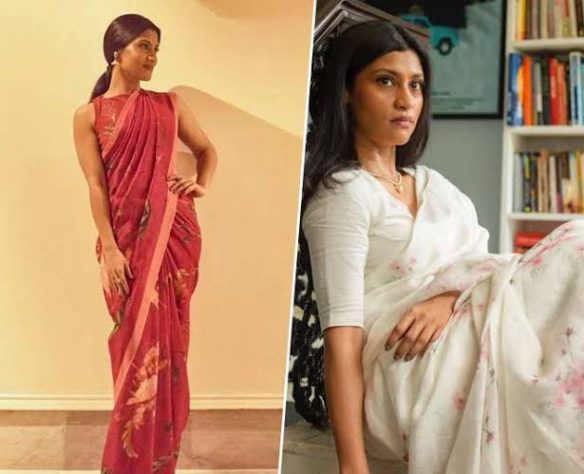Konkona Sen Sharma reveals the secrets of the film world! Women are treated like furniture, caste discrimination is common

Posted on: by Dalit Times
Konkona Sen also spoke openly about the film industry’s behavior towards women and told how women are used like furniture. On the other hand, who will sit where on the film set, who will get what food, whose bathroom will be where, all this is based on caste and class identity.
Konkona Sen Sharma’s revelations about caste and gender discrimination in the film industry have once again brought to light the bitter truth that every sector of Indian society, even if it is a creative industry like art and cinema, faces discrimination on the basis of caste and gender. Especially the people of the Dalit community, whose existence has been bound by social injustice and oppression for centuries, are still facing this discrimination. That is, we can say that the Dalit community has been facing this discrimination for centuries.
Dalit oppression in every sphere
The film industry, which appears to be full of glamour and glitz on the outside, has a dark side that shows the roots of patriarchal thinking and caste discrimination that the Dalit community has been facing for a long time. Konkona’s statement is not limited to the film industry alone, but it points to the mindset that is prevalent in the entire society, which discriminates against people on the basis of caste and class.
Caste discrimination in Bollywood is nothing new, but talking about it is still considered taboo in many sections of society. People from the Dalit community do find entry into the industry, but it is a big challenge for them to make their mark in the mainstream. They are often confined to side roles or menial jobs, and are identified based on their caste rather than their talent. When Konkona Sen Sharma spoke about caste and class discrimination in the industry, she exposed the truth that Bollywood, which is supposed to be the epitome of glitz and glamour from the outside, is patriarchal and caste-based from the inside.
All based on caste and class identity
The deep roots of this discrimination are also seen in the filmmaking process. Who will sit where on the film set, who will get what food, whose bathroom will be where, all this is based on caste and class identity. This problem is not limited to film sets only, but has become an unspoken rule in the entire industry. Artists and technicians from higher castes are given more respect and facilities, while people from lower castes or Dalit communities are marginalized. Many times, Dalit artists are forced to hide their names and identities so that they can get work.
Women are used like furniture in the film industry
The situation is even worse for Dalit women. They not only face caste discrimination but also gender harassment. Konkona Sen has also spoken openly about the film industry’s behavior towards women and how women are treated like furniture. If they are not senior actresses, they are treated with extreme disregard and inhumanity. Dalit women are victims of this double oppression – on the one hand they have to suffer oppression on the basis of their caste and on the other hand on the basis of gender. They feel most unsafe on film sets, where no action is taken against those who misbehave with them.

Crimes are not reported properly
Konkona highlighted another important aspect of this discrimination and that is the ignorance of sexual harassment cases. She said that many cases of sexual harassment on the sets are not even reported because people are afraid. Sexual harassment cases against Dalit women are also similar. Often the violence against them is ignored because they do not have any influential support. The crimes against them are not reported properly and neither do they get justice.
Hema committee report made everything clear
After the Hema Committee report in the Malayalam film industry, it has become even more evident that sexual violence and gender inequality are rampant in the film industry. The report showed how big stars and powerful people are involved in this violence and no concrete action is taken against them. Similarly, in Bollywood too, there is silence about the atrocities against Dalit women. This silence is not only within the industry but also pervades the entire society, where caste discrimination is considered an essential part of the social structure.
It is very important to speak openly on such issues
However, this story of struggle of the Dalit community is not limited to pain and oppression. Dalits have always fought for their rights and are still doing so. They have raised their voice through education, art, politics, and social movements. Many Dalit artists have made their mark despite their struggles and have proved to the society that talent is not dependent on caste. They have fought against this discrimination and inspired others through their contribution to the film industry.
It is extremely important for people like Konkona Sen Sharma to speak out on such issues as it proves that even though caste and gender discrimination is deeply ingrained in the industry, there are people who challenge it. This awareness and support will empower the Dalit community and women and help bring about change in this industry.




